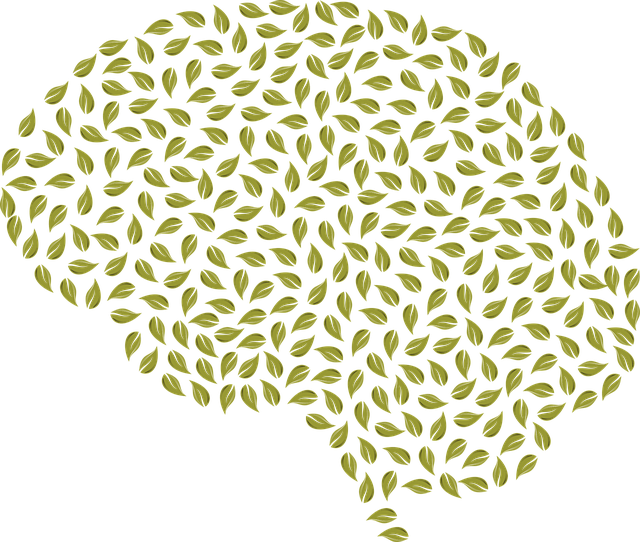Mental wellness journaling, enhanced by Dialectical Behavioral Therapy (DBT) techniques, is a powerful tool for self-reflection and personal growth. By combining writing with DBT's acceptance and change skills, individuals gain deeper emotional intelligence, track mental health patterns, develop healthier coping mechanisms, and improve overall well-being. Regular journaling, facilitated by structured prompts, helps in pattern recognition, goal setting, and achievement celebration, making it a valuable component of mental wellness coaching programs. This practice offers anxiety relief, complements burnout prevention strategies, and promotes cultural sensitivity in mental healthcare.
Unwind and reconnect with yourself through the transformative power of mental wellness journaling. This article explores how this simple yet profound practice can be a game-changer in managing your emotional well-being, especially when enhanced by dialectical behavioral therapy (DBT) techniques. From understanding its benefits to setting up a dedicated space, we’ll guide you through effective writing prompts and provide tips for seamless integration into your daily routine.
- Understanding Mental Wellness Journaling: A Powerful Tool for Self-Reflection
- The Role of Dialectical Behavioral Therapy (DBT) in Journaling Techniques
- Setting Up Your Journal: Creating a Safe Space for Your Thoughts
- Effective Writing Prompts for Unlocking Emotional Insights
- Integrating Journaling into Daily Life: Consistency and Mindfulness
Understanding Mental Wellness Journaling: A Powerful Tool for Self-Reflection

Mental wellness journaling is a powerful tool for self-reflection and personal growth that can significantly enhance one’s mental wellness journey, especially when coupled with therapy for dialectical behavioral therapy (DBT). By dedicating time to write down thoughts, feelings, and experiences, individuals engage in an introspective practice that allows them to gain deeper insights into their emotions and behaviors. This process facilitates self-awareness—a crucial aspect of building resilience and effective crisis intervention guidance.
Through regular journaling, people can track patterns in their mental health, identify triggers, and develop healthier coping mechanisms. It provides a safe space to explore complex feelings without judgment, fostering an environment conducive to healing and personal transformation. The practice encourages individuals to reflect on their progress, set goals, and celebrate achievements, ultimately contributing to improved overall well-being.
The Role of Dialectical Behavioral Therapy (DBT) in Journaling Techniques

Dialectical Behavioral Therapy (DBT) offers valuable insights and techniques that can greatly enhance mental wellness journaling practices. This therapy, often sought for individuals dealing with complex emotions or challenging behaviors, emphasizes the balance between acceptance and change. Journaling, as a DBT skill, encourages clients to explore their feelings without judgment, fostering emotional intelligence and self-awareness. By integrating Mind Over Matter principles, individuals can reframe negative thoughts and experiences, leading to personal growth.
DBT’s structured approach, including cultural competency training for healthcare providers, ensures that journaling becomes a safe space for expression. It promotes the reflection on interrelated factors like one’s environment, relationships, and past traumas. This comprehensive view allows individuals to understand the root causes of their emotions, making it an effective tool in managing mental health. Through regular practice, journaling can help individuals develop coping strategies and build resilience, ultimately improving their overall well-being.
Setting Up Your Journal: Creating a Safe Space for Your Thoughts

Setting up your journal is a crucial step in creating a safe and supportive space for exploring your mental wellness. Choose a quiet, comfortable area where you can be undisturbed, allowing yourself dedicated time to reflect and write. Consider using a physical notebook or a digital document—whichever format feels more natural and encouraging to your creative process. Personalize your journal by adding inspiring quotes, setting intentions, or sketching to create a sensory experience that resonates with you. This personalized touch can make the journaling process more enjoyable and help establish it as a consistent habit.
Incorporating aspects of dialectical behavioral therapy (DBT) into your mental wellness journey through journaling is beneficial. You can use prompts related to mindfulness, emotion regulation, distress tolerance, and interpersonal effectiveness to develop coping skills and enhance positive thinking. As you write, reflect on your emotions and thoughts without judgment, fostering a non-reactive mindset. Regularly reviewing your entries allows for pattern recognition and personal growth, making journaling an effective tool in your mental wellness coaching programs development.
Effective Writing Prompts for Unlocking Emotional Insights

Effective writing prompts can unlock profound emotional insights, making mental wellness journaling a powerful tool for self-reflection and growth. For individuals engaging in therapy or exploring Dialectical Behavioral Therapy (DBT), prompts that encourage exploration of feelings, past experiences, and current triggers are invaluable. Starting with simple questions like “What made me feel seen and heard today?” or “Identify one moment when I felt truly peaceful,” can help individuals identify patterns and gain awareness of their emotional responses.
These introspective exercises complement burnout prevention strategies for healthcare providers by promoting self-care and coping mechanisms. By regularly engaging in mental wellness journaling, individuals can also find relief from anxiety and explore strategies to enhance overall well-being. Moreover, the practice fosters a deeper understanding of one’s emotional landscape, which is crucial for navigating life’s challenges, as supported by evidence in Mental Health Policy Analysis and Advocacy.
Integrating Journaling into Daily Life: Consistency and Mindfulness

Integrating journaling into your daily routine can significantly enhance mental wellness, serving as a powerful tool for self-reflection and emotional processing. Consistency is key; setting aside just 15 minutes each day to write down thoughts, feelings, and experiences allows for a continuous practice of mindfulness. This simple act encourages individuals to become more attuned to their inner world, fostering a deeper understanding of themselves. By cultivating this habit, one can effectively use journaling as therapy, drawing parallels with Dialectical Behavioral Therapy (DBT) techniques that emphasize self-regulation and awareness.
The cultural sensitivity inherent in mental healthcare practice is also enhanced through journaling. Individuals from diverse backgrounds can express their unique experiences, emotions, and perspectives on mental wellness in their own ways, ensuring a more inclusive approach to therapy. This process not only boosts mental wellness but also cultivates confidence by providing a safe space for self-expression.
Mental wellness journaling is a versatile tool that can significantly enhance self-awareness and emotional well-being. By integrating techniques from dialectical behavioral therapy (DBT), individuals can unlock profound insights through structured writing prompts. Setting up a dedicated space for your journal fosters a safe environment to explore thoughts and feelings, enabling consistency in practicing mindfulness. This simple yet powerful exercise has the potential to revolutionize mental health management, providing folks with a personal symphony of emotional regulation and self-reflection.














